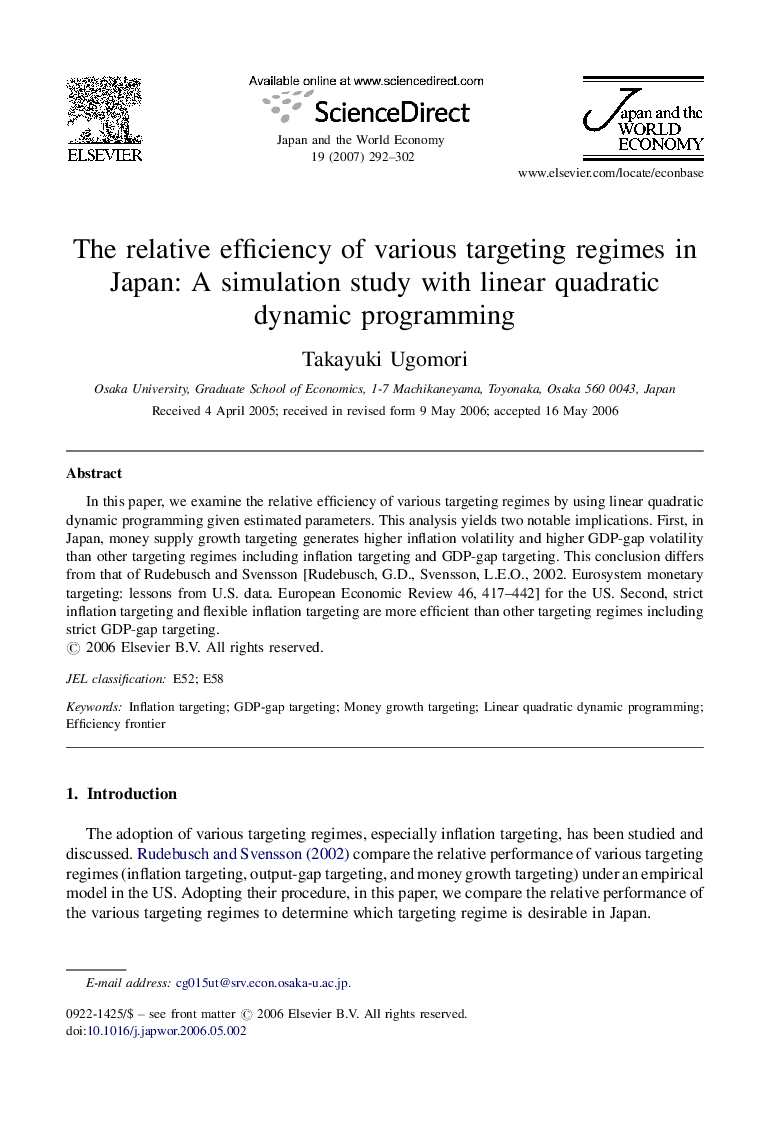| Article ID | Journal | Published Year | Pages | File Type |
|---|---|---|---|---|
| 5086488 | Japan and the World Economy | 2007 | 11 Pages |
Abstract
In this paper, we examine the relative efficiency of various targeting regimes by using linear quadratic dynamic programming given estimated parameters. This analysis yields two notable implications. First, in Japan, money supply growth targeting generates higher inflation volatility and higher GDP-gap volatility than other targeting regimes including inflation targeting and GDP-gap targeting. This conclusion differs from that of Rudebusch and Svensson [Rudebusch, G.D., Svensson, L.E.O., 2002. Eurosystem monetary targeting: lessons from U.S. data. European Economic Review 46, 417-442] for the US. Second, strict inflation targeting and flexible inflation targeting are more efficient than other targeting regimes including strict GDP-gap targeting.
Related Topics
Social Sciences and Humanities
Economics, Econometrics and Finance
Economics and Econometrics
Authors
Takayuki Ugomori,
